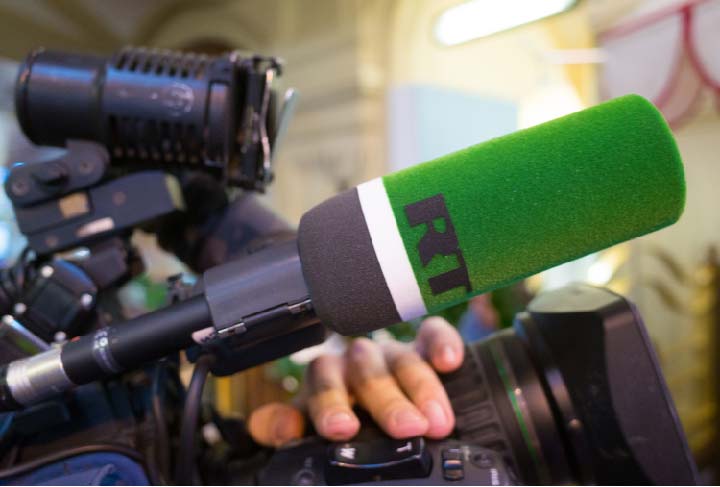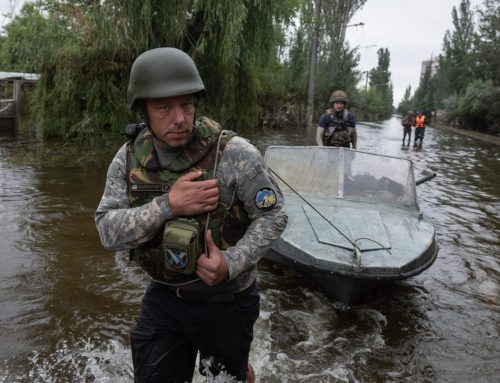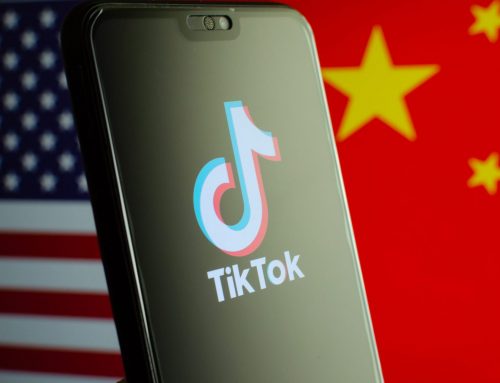Overview
Coronavirus coverage was again the primary through line in messaging from Russia, Iran, and China last week, with Russian state media and diplomats touting an alleged breakthrough in the country’s development of a vaccine (a claim boosted by Iran), and Chinese messengers hammering the Trump administration for botching its response to the pandemic. Outside of coronavirus coverage, Russia took aim at Ukraine, levelling familiar accusations against its neighbor for supporting far-right extremism and discriminating against Russian-language speakers. China lashed out at both the United States and United Kingdom over the latter’s decision to ban Huawei from its domestic networks and the former’s alleged hypocrisy in criticizing China over a host of issues ranging from repression in Xinjiang to security concerns with the popular social media app TikTok. Iran celebrated the fifth anniversary of the signing of the Iran nuclear deal by slamming the U.S. withdrawal and subsequent “maximum pressure” campaign. Iranian diplomats and media also criticized Saudi Arabia’s role in Yemen, as well as the EU and UN’s role in enabling the massacre of Bosnian Muslims in Srebrenica 25 years ago. China, which has sought greater influence in Serbia, did not mention the anniversary of the Srebrenica massacre in any state media or diplomatic posts. Russia (a longtime ally of Serbia) used its wide arsenal of Sputnik outlets to push different narratives tailored to each outlet’s target audience: In Serbia, the anniversary was used to lament the current lack of political rights for Serbs in Srebrenica, while in countries with Muslim majorities (Turkey) or significant Muslim minorities (France and Germany) the event was remembered as a “genocide” and a “massacre.”
Russia Toplines
Last week, the Russian media ecosystem highlighted Russia’s progress in coronavirus research, touting the drug Avifavir and emphasizing that Russia may be the first to complete development of a vaccine. Predictably, Russian officials also denied reports that it had attempted to hack Western vaccine research, claiming the accusations marked the latest example of the West’s campaign to “blame Russia” for its problems. On Twitter, Russian diplomats targeted Ukraine with familiar accusations related to far-right extremism, language discrimination against Russian speakers, and not fulfilling Minsk Agreement obligations.
China Toplines
London’s decision to ban Huawei from its 5G network was a major point of irritation for Beijing, as evidenced by the prominence of both the United Kingdom and Huawei in Chinese government and state media messaging last week. Nevertheless, the United States remained Beijing’s prime target, with Chinese Ministry of Foreign Affairs’ spokesperson Hua Chunying unleashing a barrage of anti-American criticism throughout the week. Beijing was eager to point to alleged American hypocrisy in everything from Washington’s position on TikTok to denunciation of repression in Xinjiang and Chinese policy in Taiwan and the South China Sea.
Iran Toplines
Iran-backed media and diplomatic accounts spent much of last week discussing the Iran nuclear deal on the fifth anniversary of its signing and criticizing the U.S. withdrawal and subsequent “maximum pressure” campaign. These accounts continued to advance other familiar narratives, including about Iranian cooperation with Russia and China, as well as strong criticism of Saudi Arabia and its conduct in Yemen. Iranian media also marked the 25th anniversary of the Srebrenica massacre, invoking it to criticize the EU and UN as feckless or hypocritical. Perhaps surprisingly, coverage of the reported agreement between Iran and China remained very limited, with only a handful of posts mentioning it at all, mostly to quote The New York Times in calling it a failure of the Trump administration’s efforts to isolate Iran.
Top Accounts
Russian, Chinese, and Iranian state-funded media and government and diplomatic corps accounts:
Top 10 Accounts by Tweets, Likes, and Retweets — July 11-July 17: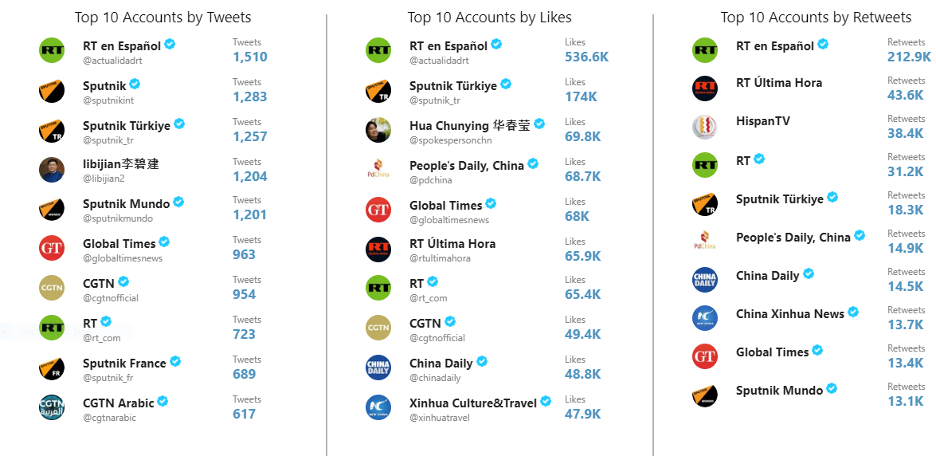
Top Hashtags
Russian, Chinese, and Iranian state-funded media and government and diplomatic corps accounts:
Top 10 Hashtags — July 11-July 17: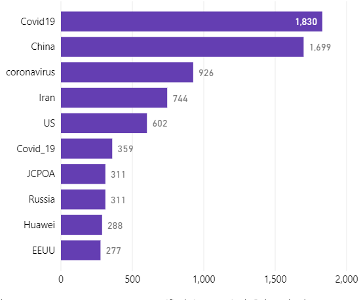
Top Countries Mentioned
Top 10 countries mentioned by Russian, Chinese, and Iranian messengers on Twitter, YouTube broadcasts, and state-sponsored websites — July 4-July 10 (NOTE: there is no broadcast data for Iran):
Twitter mentions:
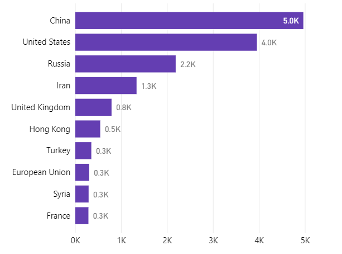
Broadcast Mentions:
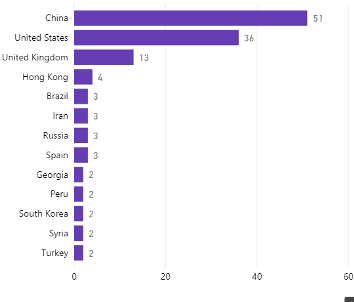
Website Mentions:
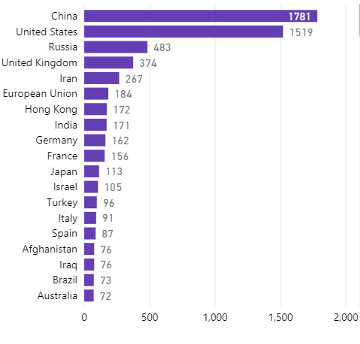
Russia
Russia and the Race for a Coronavirus Vaccine: Avifavir, a Vaccine Trial, and Hacking Allegations
Three notable threads involving Russia and the coronavirus came together last week. First, Russian state media and officials continued to tout Russia’s coronavirus drug Avifavir, particularly to countries in Latin America. Second, Russia announced the successful completion of clinical trials for an anti-COVID-19 vaccine, with TASS reporting on comments that Russia may have the first vaccine. Both position Russia as a world leader in coronavirus research. Third, Russia categorically denied reports that it had attempted to hack Western vaccine research, returning to standard accusations of Russophobia and in some cases suggesting that the accusations were timed to “tarnish” Russia’s vaccine progress:
Avifavir:
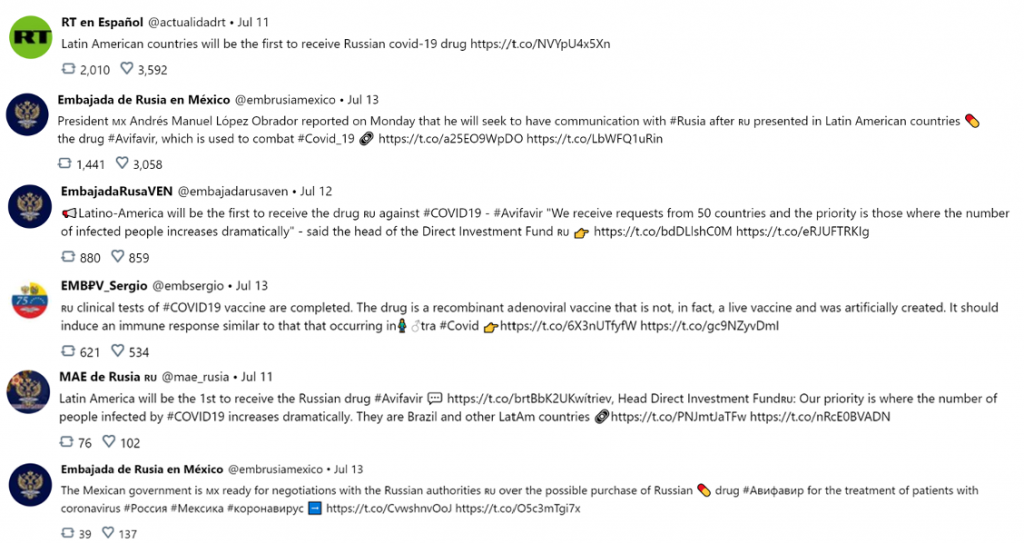
“Over 50 countries submit purchase requests for anti-COVID-19 Avifavir,” TASS, July 14, 2020.
“Over 50 countries, including Brazil and Saudi Arabia, submitted requests to procure the Russian-made Avifavir anti-coronavirus drug, Head of the Russian Direct Investment Fund (RDIF) Kirill Dmitriev stated in his column for the Newsweek magazine.”
Russia’s Vaccine:
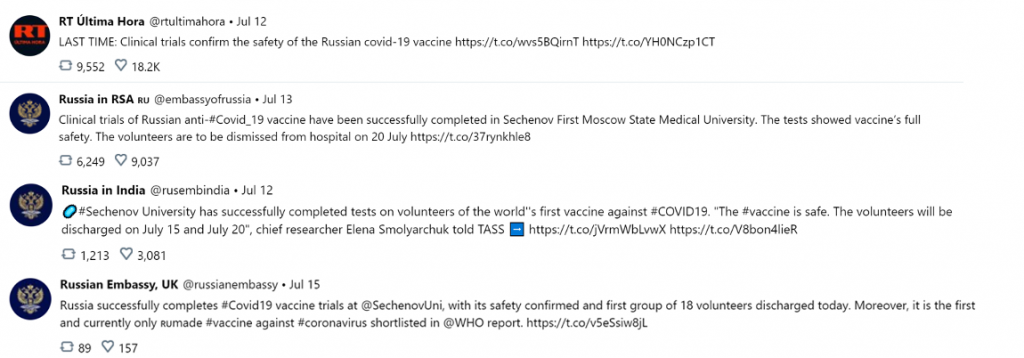
“Russia’s Sechenov University Successfully Completes Trials of World’s 1st COVID-19 Vaccine,” Sputnik News, July 12, 2020.
“The clinical trials of the world’s first coronavirus vaccine on volunteers at the Sechenov First Moscow State Medical University have been successfully completed, Vadim Tarasov, the director of the Institute for Translational Medicine and Biotechnology, told Sputnik.”
“Russia may finish first in race for coronavirus vaccine, says expert,” TASS, July 16, 2020.
“The final, phase 3, trials of a Russian vaccine against coronavirus developed by the Gamalei National Research Center for Epidemiology and Microbiology may be completed quicker than in other countries, the head of the Russian Direct Investment Fund, Kirill Dmitriev, told the Vesti news program on Rossiya-1television on Thursday.”
Hacking:
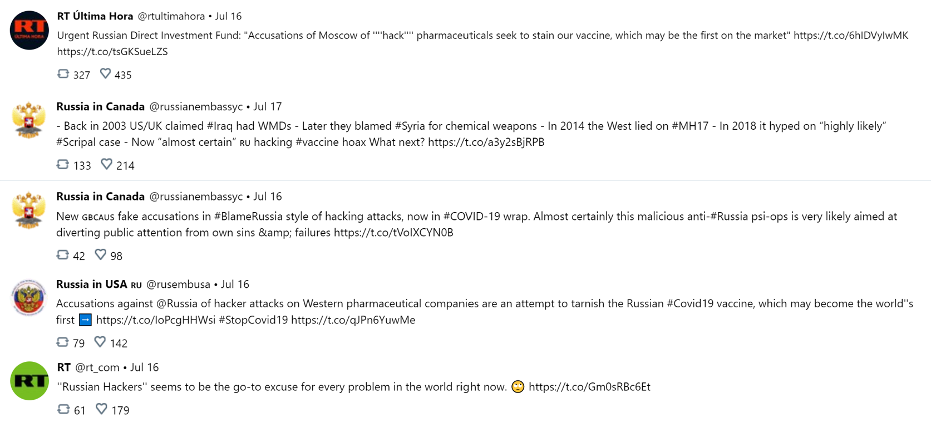
“Returning to ‘highly likely’ tactics: Russia rejects UK’s ‘unsubstantiated’ claims of hacking & election meddling,” RT, July 16, 2020.
“Moscow didn’t interfere in the UK election last year, and has no idea who tried to hack British pharma companies for Covid-19 vaccine data, the Kremlin press secretary Dmitry Peskov said. ‘We have no information on who could’ve hacked the pharma companies and research centers in the UK. We can only say one thing – Russia has nothing to do with those attempts,’ Peskov said. ‘We reject these kind of accusations,’ he added, referring to both the hacking and election meddling claims as ‘unsubstantiated.’”
“Beware! Russia needs your vaccine! UK, US & Canada say hackers targeting Covid-19 research are ‘almost certainly’ Kremlin-linked,” RT, July 16, 2020.
“An online hacker group known as ‘The Dukes’ or ‘Cozy Bear’, which is “almost certainly” linked to the Kremlin, have targeted researchers working on a Covid-19 vaccine, the UK’s National Cyber Security Centre (NCSC) and allies say.”
“Russian COVID-19 Vaccine Developers Say Ready to Share Data With Foreign Colleagues,” Sputnik News, July 17, 2020.
“Russia’s Gamaleya Institute of Epidemiology and Microbiology has produced a coronavirus vaccine that is patented and more advanced than Western competitors and will be happy to share the technology with foreign colleagues, should they require, the institute’s head, Alexander Gintsburg, said on Friday. The statement comes on the heels of allegations voiced on Thursday by the UK National Cyber Security Centre that Russian-linked hackers have tried to crack the technology of COVID-19 vaccine developers in the United Kingdom, the United States and Canada. The Kremlin has refuted the allegation.”
“Moscow Refutes UK Claims That Russia-Linked Hackers Tried to Steal Data on COVID-19 Vaccine,” Sputnik News, July 16, 2020.
“Last month, the head of the UK spy agency GCHQ said that Britain’s intelligence agents had detected multiple cyberattacks on the country’s health infrastructure this past spring, linking the attacks to attempts to steal sensitive data about a possible COVID-19 vaccine. Russia rejects the United Kingdom’s accusations of having a role in any cyberattacks on Western institutions involved in coronavirus vaccine research, presidential spokesman Dmitry Peskov has said.”
“Kremlin rebuffs UK’s ‘hacking attack’ accusations against Russia,” TASS, July 17, 2020.
“Russia has nothing to do with a hacking group, which, according to the British authorities, was involved in alleged cyber attacks against the UK, Kremlin Spokesman Dmitry Peskov told reporters . . . When asked if the Cozy Bear hacking group was affiliated with Russian intelligence agencies, Peskov said: ‘We know absolutely nothing about the group and who it is affiliated with.’”
Russian Diplomats Target Ukraine with Familiar Accusations
Last week, #Ukraine was among the top ten hashtags on Twitter, reflecting a limited messaging push critical of Ukraine, largely from diplomatic accounts. One main point of this criticism emphasized far-right extremism in Ukraine, including the “glorification of Nazi collaborators,” some of which seemed spurred by an incident involving an independent journalist who was threatened over reporting on far-right ties at Ukrainian fact-checking organization StopFake. The messaging also highlighted the Russian Foreign Ministry’s new report on human rights in Ukraine, which emphasized claims of anti-Russian language discrimination in Ukraine, and the usual blaming of Ukraine for lack of progress in implementing the Minsk Agreements. In some instances, these criticisms also included criticism of the West’s support for Ukraine in the ongoing conflict in the eastern part of the country:
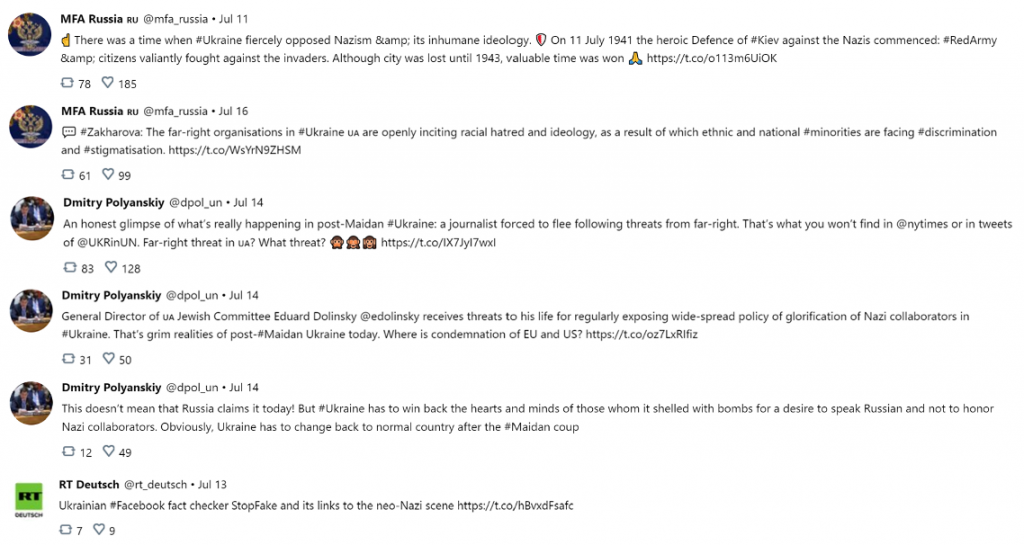
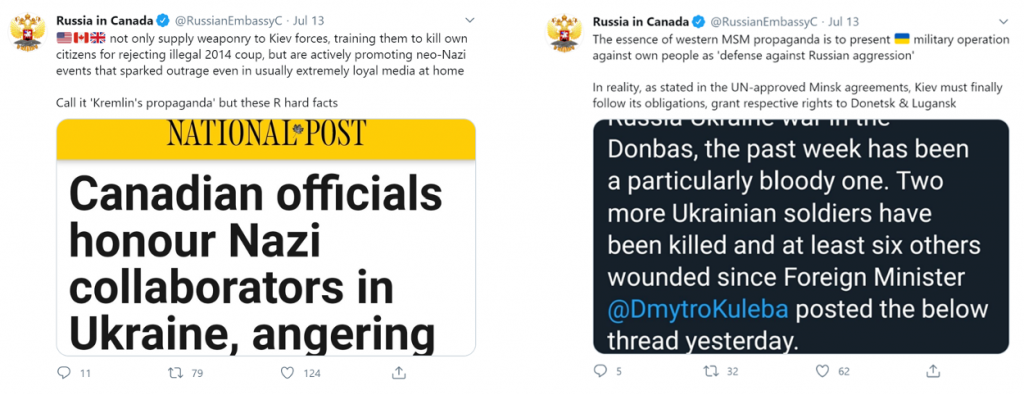
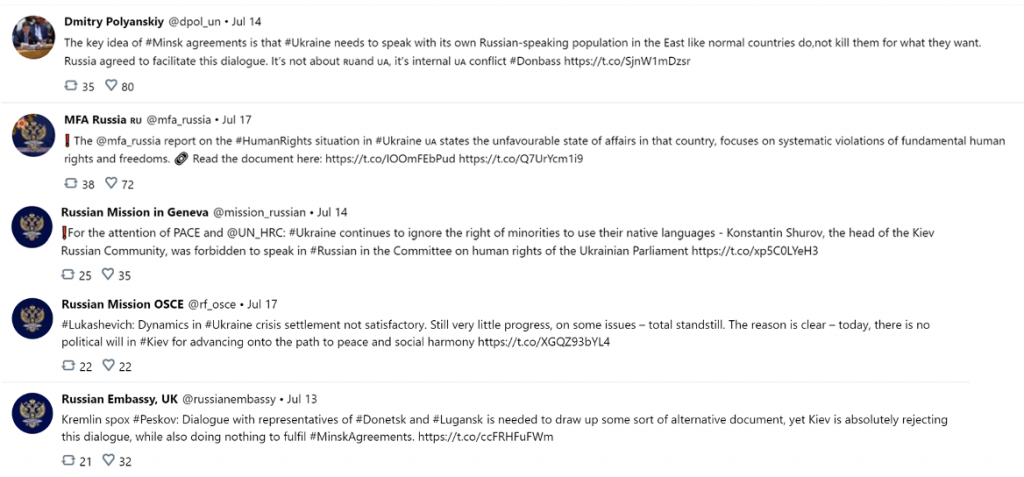
“Human rights situation in Ukraine continues to deteriorate — Moscow,” TASS, July 16, 2020.
“Ukraine has systemic problems in the human rights domain, but its government is reluctant to fix the existing violations, the Russian Foreign Ministry said in a report on the issue. ‘The human rights situation in Ukraine continues to deteriorate. Kiev is adopting legislative acts that run counter to the national legislation and international obligations,’ the ministry said in the document, released on Thursday.”
“Putin & Merkel agree in phone call that Minsk agreements on E. Ukraine conflict ‘have no alternatives,’” RT, July 15, 2020.
“Russian President Vladimir Putin and German Chancellor Angela Merkel discussed implementing the Minsk agreements to peacefully solve the conflict in eastern Ukraine in a phone call on Wednesday. Putin ‘emphasized the counter-productivity of Ukrainian attempts to distort the substance’ of the agreements amid Kiev’s statements about the need to review them, according to the Kremlin press service. ‘He underscored that Kiev’s course toward selective fulfillment of its obligations brings the negotiations process to a stalemate.’”
Srebrenica Massacre
On the 25th anniversary of the massacre of Bosnian Muslims in Srebrenica, Bosnia, Kremlin-funded media used its regional Sputnik outlets to present very different narratives about the event. Sputnik Serbia ran an article titled “Srebrenica i posle četvrt veka bez prava na glas Srba,” which roughly translates to “Serbs are without the right to vote in Srebrenica even after a quarter century.” That Russian media would peddle a pro-Serbian line in relation to the massacre is unsurprising given the historical ties between the two countries. But Sputnik’s messaging in countries with significant Muslim populations (Turkey, France, and Germany) shows its ability, and willingness, to leverage multiple media outlets to push competing messages targeted at different populations:



Russian state-funded media and government and diplomatic corps accounts:
Top 10 Hashtags — July 11-17:
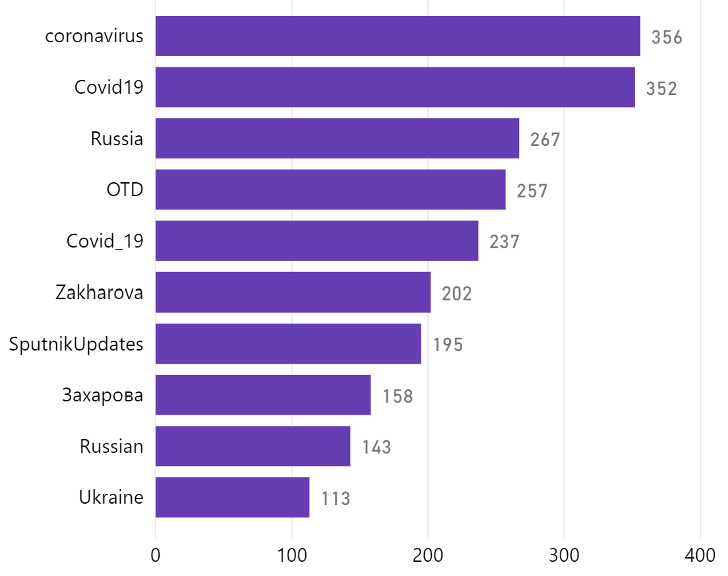
Websites
Russian government-funded websites:
Notable among the top ten articles by Facebook shares were an article highlighting claims of “over-exaggeration” of coronavirus deaths in the UK and media criticism related to the pandemic:
“UK health minister calls for ‘urgent review’ after scientists expose ‘over-exaggeration’ of Covid-19 death toll,” RT, July 17, 2020.
“UK Health Secretary Matt Hancock has ordered an “urgent review” into how Public Health England (PHE) calculates coronavirus death figures. It comes after two UK-based scientists highlighted the serious flaw in PHE’s statistics.”
“‘Anti-science saga’? NBC contributor who documented harrowing battle with Covid-19 NEVER had the virus,” RT, July 11, 2020.
“The dramatic televised saga of a doctor’s struggle to overcome coronavirus has ended in embarrassment after the NBC News contributor quietly admitted that there’s no evidence he ever had the virus. Is this the zenith of fake news?”
Broadcasts
Russian state-owned media:
RT continued to highlight the U.K. decision to ban Huawei from its 5G network, with a few videos again indicating that the U.K., to its own detriment, caved to U.S. pressure:
“The U.S.’ role in the UK’s decision on Huawei,” RT UK, July 14, 2020.
“”It’s weird we’re blaming China for this when really we should be blaming the Trump administration” International affairs analyst Jonathan Steele weighs in on if Britain’s removal of Huawei is proof of it ‘becoming America’s poodle.’”
“Did BoJo fold to US in banning Huawei 5G deal?” RT America, July 14, 2020.
“The United Kingdom has announced it is banning Chinese telecom giant Huawei from its 5G infrastructure rollout. Operators BT and Vodafone have until 2027 to remove Huawei’s equipment from their critical infrastructure and 5G networks, as the sweeping decision echoes US sentiment against China.”
“Did our relationship with the U.S. cost us 5G?” RT UK, July 15, 2020.
“”The UK is under extreme pressure to follow the American lead.” China specialist Andrew Leung explains how our ‘Special Relationship’ with the U.S. could have cost us our 5G.”
Like the previous week, coverage of developments in the Jeffrey Epstein saga received significantly more views on YouTube than RT’s normal fare, with the following video receiving more than 130,000 views:
“BREAKING: Ghislaine Maxwell pleads not guilty,” RT America, July 14, 2020.
“Ghislaine Maxwell, alleged to have helped now-deceased sex offender Jeffrey Epstein exploit minors, pleaded not guilty when she was arraigned through a video call Tuesday at a federal court in New York City.”
Finally, RT UK interviewed people on the streets of London about allegations of Russian interference in the 2019 UK election, and in their sampling, everyone was skeptical:
“Londoners weigh in on NEW accusations of Russian Meddling,” RT UK, July 17, 2020.
“‘Sometimes I think these things are dragged up as a smokescreen.’ Londoners weigh in on NEW accusations of Russian Meddling.”
China
London Not Calling
Last week, the Chinese network monitored by Hamilton was up in arms over the United Kingdom’s announcement that it would ban Huawei from its 5G infrastructure and compel British operators to rip out existing Huawei kits from their networks over coming years. On Twitter, #Huawei was the fifth most-used hashtag of the week.
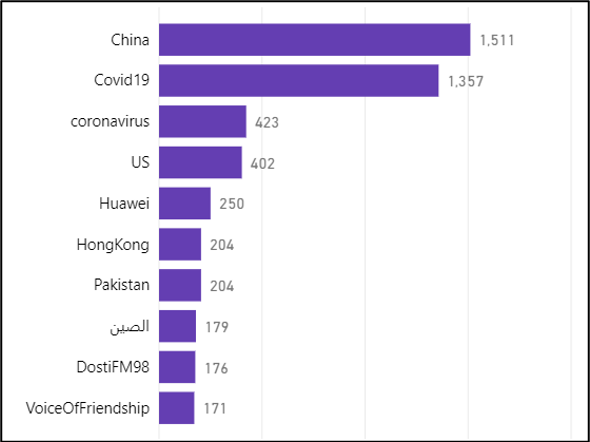
Hua Chunying led the charge against London’s measure on July 15:

In the following days, Chinese diplomats from Venezuela, Austria, Pakistan, and South Africa joined the fray:
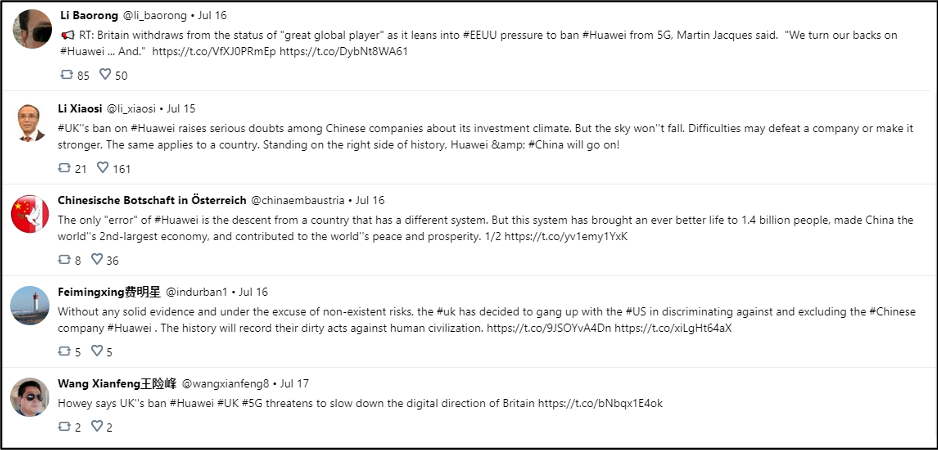
Chinese state media matched diplomats’ rhetoric and wrote no less than 39 stories in some way related to the U.K.’s Huawei ban. Of the ten most-shared state media stories on Facebook last week, three concerned London’s decision. Put in chronological order, they neatly illustrate the evolution of Beijing’s messaging around the issue:
“UK bans Huawei from 5G network,” CGTN, July 14, 2020.
“China voices strong opposition to UK’s Huawei 5G ban,” CGTN, July 15,2020. (Tellingly, on July 16, this article was renamed to “China says UK ban on Huawei ‘severely’ damages investment confidence”)
“UK’s Huawei ban betrays ‘free-trade principles,’ says China,” CGTN, July 16, 2020.
There were also a few video segments devoted to the issue:

Although not among the ten most-shared articles, a Huawei-related article worthy of note is Xinhua’s “Interview: Britain retreats from “major global player” on Huawei policy – expert.” The idea that the ban represents the end of an independent British foreign policy and a move towards open subservience to the United States is frequently implied in much of Beijing’s comments on the issue.
All-Out Attack on the United States
As always, the United States drew a significant portion of the negative stories and commentary from Beijing’s messengers last week. #US was the fourth most-used hashtag last week and the country was mentioned more than twice as much as the previous week.
One of the principal messengers of #US-focused coverage was Hua Chunying, who employed a combative tone to tick off a long list of grievances toward Washington:
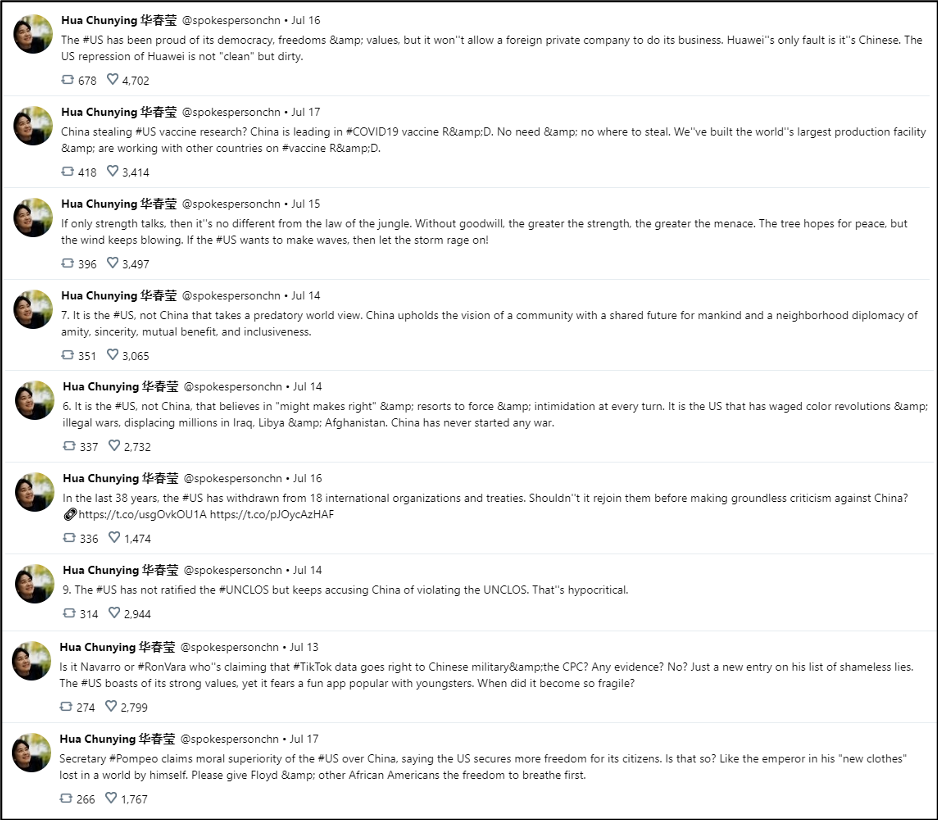
Much of Hua’s criticisms are retreads of Beijing’s usual talking points: The United States is hypocritical, treats its minorities poorly, and is guided by an arbitrary dislike for hard-working China. Besides the already touched-upon Huawei issue, Hua mentioned several issues specific to last week’s top stories, most notably surrounding TikTok and the South China Sea.
Regarding TikTok, the popular social media app with a parent company based in Beijing, the Trump administration is considering following in India’s footsteps and banning the app in the United States.
Trump advisor Peter Navarro (an outspoken opponent of TikTok), was targeted by both Hua and Chinese state media in stories like CGTN’s “China slams top Trump aide threatening ‘strong actions’ on TikTok, says U.S. is ‘world’s real hacker empire’” and “Trump risks losing his reelection in dealing with TikTok,” and Global Times’ “Decimating Chinese apps displays US weakness: official.” A couple of video segments made similar points:
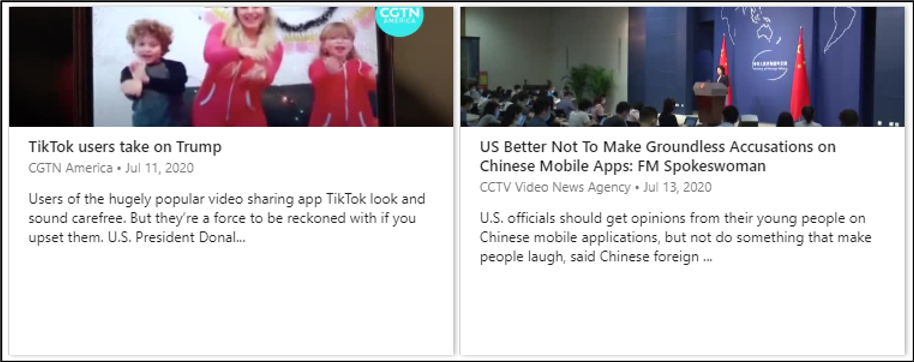
Regarding the South China Sea, #SouthChinaSea was the fourth most-used hashtag by Chinese diplomatic and government Twitter accounts monitored by Hamilton last week. Several Chinese diplomats weighed in on U.S. Secretary of State Mike Pompeo’s statement on July 13 that Beijing’s claims in the region were unlawful:
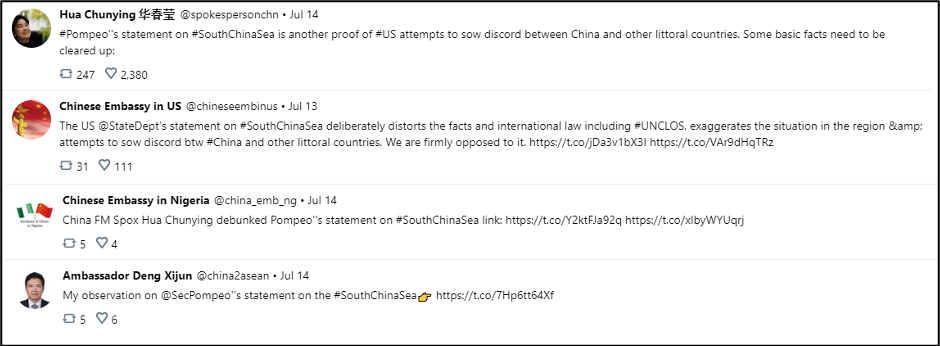
In parallel to the diplomatic push, state media ran more than 20 stories on the South China Sea last week. A quick skim through the titles is enough to get a sense of the pieces’ tone:
“‘Zero chance’ for US to isolate China,” Global Times, July 15, 2020.
“Expert: U.S. has completely abandoned neutrality on South China Sea,” CGTN, July 16, 2020.
“S. undermining South China Sea stability: Foreign Ministry,” Xinhua, July 15, 2020.
Lastly, several Chinese diplomatic accounts relayed Beijing’s decision to sanction Lockheed Martin for a recent arms sale to Taiwan:
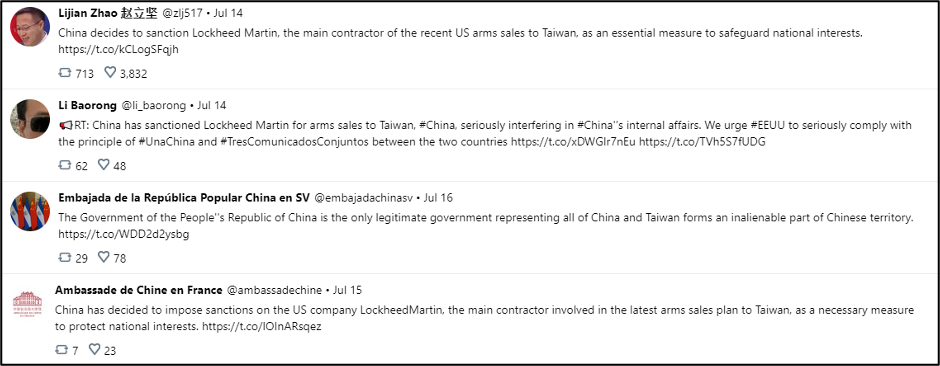
As usual, state media outlets provided additional cheerleading from the sidelines:
“China firmly opposes U.S. arms sales to China’s Taiwan region,” Xinhua, July 16, 2020.
“Taiwan’s exorbitant military spending places shackles on its economy,” CGTN, July 16, 2020.
“Lockheed Martin faces China’s sanctions over Taiwan deal,” Global Times, July 14, 2020.
Chinese state-funded media and government and diplomatic corps accounts:
Top 10 Hashtags — July 11-July 17:
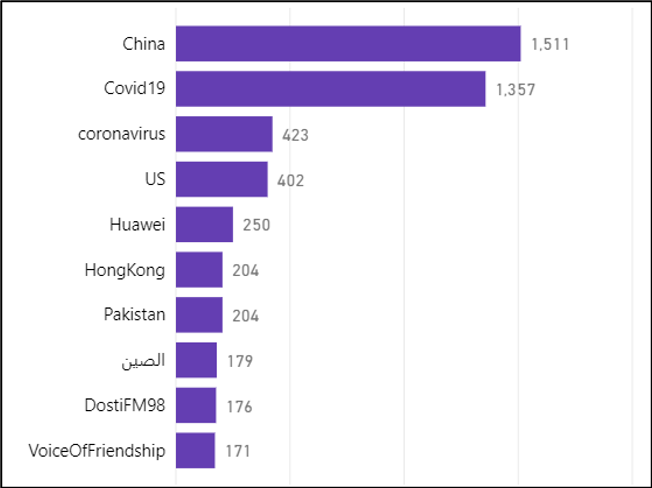
The Hamilton dashboard collected about 15,000 tweets from monitored Chinese Twitter accounts between July 11 and July 17, up slightly from the previous week but consistent with volumes observed over the previous month. #China and #US climbed up as compared to the previous week while #Covid19 and #HongKong fell off, both in terms of ranking as well as absolute numbers. In particular, #HongKong was used around 40 percent less last week than in the previous week.
An interesting data point not mentioned above concerns the Chinese ambassador to Brazil who came out strongly against the American ambassador in Brasilia. The latter had relayed reports of the mass sterilizations campaigns carried out by Beijing in Xinjiang:

Websites
Chinese government-funded websites:
Chinese state media continued to cover the coronavirus pandemic, paying particular attention to the United States’ botched response:
“Two-thirds of U.S. adults disapprove of Trump’s COVID-19 handling: poll,” Xinhua, July 11, 2020.
“The latest ABC-Ipsos poll shows that among American adults, dissatisfaction with President Donald Trump’s response to COVID-19 has hit the highest level since the pandemic began, with sharp drops in approvals from both Republicans and independents.”
“Trump has made 20,000 false or misleading claims since taking office: Washington Post,” CGTN, July 14, 2020.
“Over the last 14 months, such events included comments on his impeachment procedures, the COVID-19 pandemic and the police killing of African-American George Floyd. Trump has averaged 23 false or misleading claims a day.”
“Japan urges U.S. military to take virus tests prior to arrival,” CGTN, Jul 17, 2020.
“The sharp increasing COVID-19 positive cases in the U.S. military bases become a loophole in the South Korean and Japanese fighting novel coronavirus pandemic, triggering the uneasiness of the local government and residents.”
Thinking creatively about how to denigrate the United States, Beijing also amplified Moscow’s concerns about Washington’s supposed excesses:
“Russian FM: Worried about U.S. continuous accusations against China,” CGTN, July 11, 2020.
“Russia is worried about Washington’s increasing accusations against Beijing, said Russian Foreign Minister Sergey Lavrov on Friday in an online conference. We hope the U.S. will not pass the line, Lavrov said.”
Broadcasts
Chinese state-owned media:
As in the written pieces, several video segments produced by Chinese state media last week focused on supposed societal ills in United States:
“Underfunded Chicago hospitals leading the COVID-19 fight in poorest areas,” CGTN America, July 12, 2020.
In its opening three minutes, this 18-minutes segment on Chicago quotes a resident describing her area as “a war zone,” and then adds that “much of the area can be classified as a food desert.”
“Does wearing a mask violate our freedoms?” CGTN America, July 10, 2020.
The segment alternates between people like Mike Pence or Tom Hanks calmly explaining that wearing face masks is helpful and short clips of people being rude or aggressive when prompted to wear one.
“‘It’s America, speak English.’ – Radio host fired after yelling at Hispanic workers,” CGTN America, July 14, 2020.
Another clip showing a rude and uncivil interaction with barely implicit racist undertones.
As with the previous week, many video segments were devoted to the rainstorms and resulting floods currently occurring in China. Again, rescuers’ competence/heroism in the face of a cataclysmic disaster was often the central focus of CCTV’s coverage:
“Flood-Stranded Pregnant Woman Transferred to Hospital in South China,” CCTV, July 12, 2020.
“A flood-stranded pregnant woman who was about to go into labor was rescued from her flooded house in a south China city.”
“Soldiers, Firemen Brave Hardships To Fight Flood in East, Central China Provinces,” CCTV, July 13, 2020.
“As backbones of flood relief, Chinese People’s Liberation Army (PLA) soldiers and firemen are braving the hardships and difficulties to protect people’s lives and properties.”
“Student Volunteer Joins Flood Control Right after Taking National College Entrance Exam,” CCTV, July 13, 2020.
“A dedicated young man, with a sense of duty towards his community and country, volunteered to participate in a flood prevention activity.”
Iran
JCPOA, five years on
Substantial coverage last week focused on the anniversary of the Iran nuclear deal (JCPOA), with most outlets (and Foreign Minister Javad Zarif himself) using the opportunity to highlight the disagreement between the United States and Europe over policy towards Iran. This narrative allowed regime-backed outlets to frame Iran as the reasonable party, and the United States as both isolated and duplicitous:
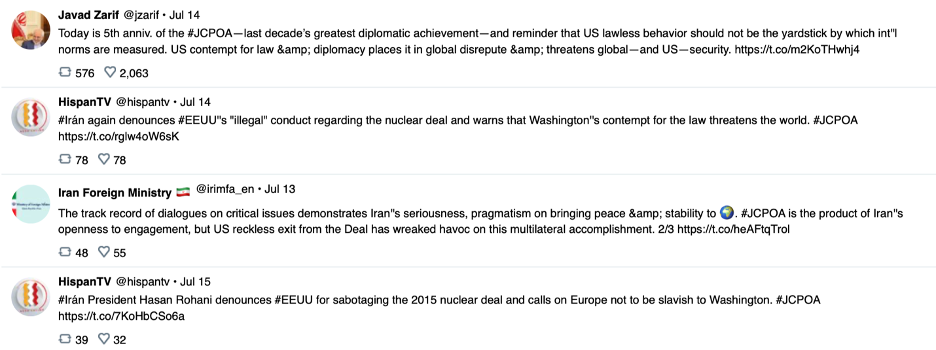
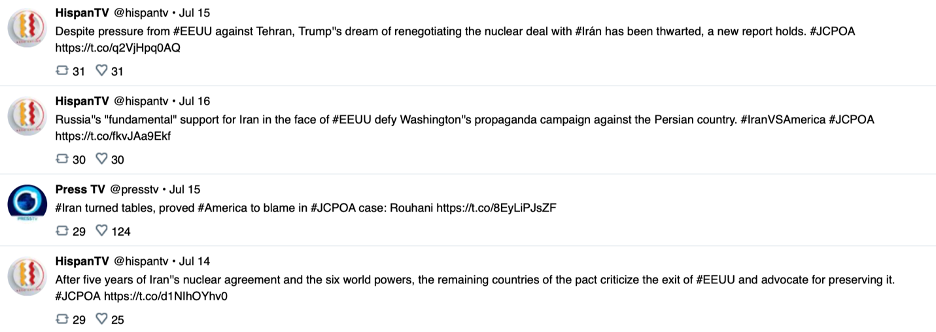
Iran, Russia, and China Standing Up to the United States
Curiously, despite substantial international reporting on a new partnership agreement between Iran and China, coverage of China and Russia in regime-backed Iranian outlets remained mostly general, emphasizing the strength of all three countries in the face of the United States, and emphasizing cooperation between them, but with few mentions of the new agreement:
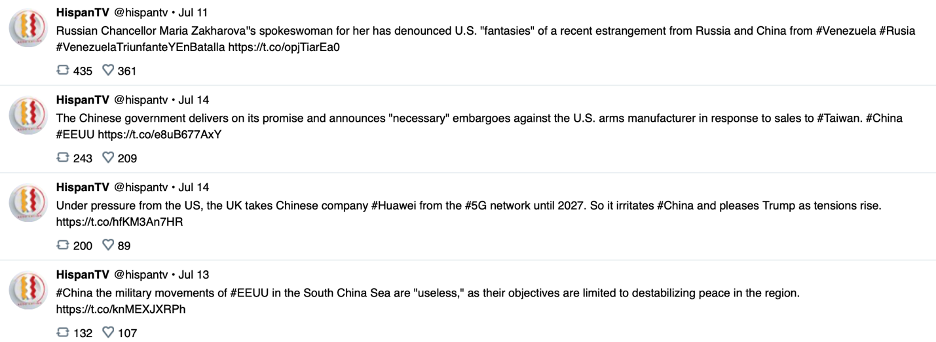


In the few instances in which the agreement was mentioned, it was usually done by citing U.S. (or even Israeli) reporting on the agreement:



A handful of posts did mention Iranian Foreign Ministry comments on the agreement, all of which were distinctly non-specific:


Continued Anger over Saudi Arabia’s Conduct in Yemen
Tehran-backed accounts increased their coverage of the conflict in Yemen last week, with stories being nearly universal in their full-throated condemnation of the conduct of the Saudi-led coalition:
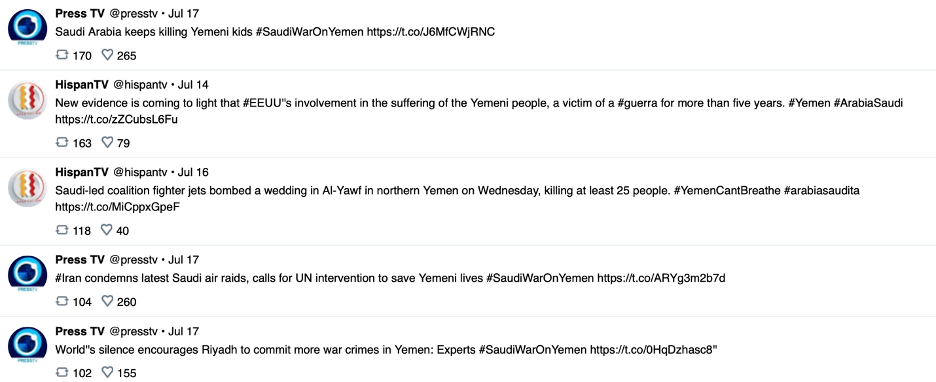
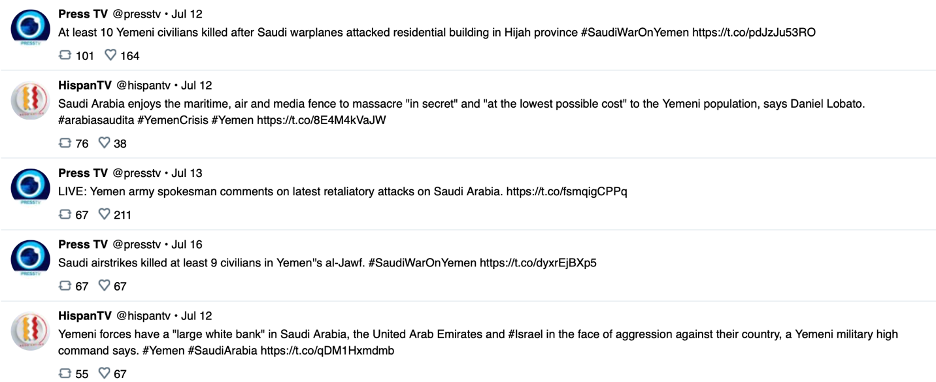
Srebrenica, 25 Years On
Iranian outlets memorialized the massacre of Bosnian civilians 25 years ago last week in the village of Srebrenica. Commentary on the catastrophe frequently blamed the UN and EU for failing to do more to protect Bosnian Muslims from Serb forces:
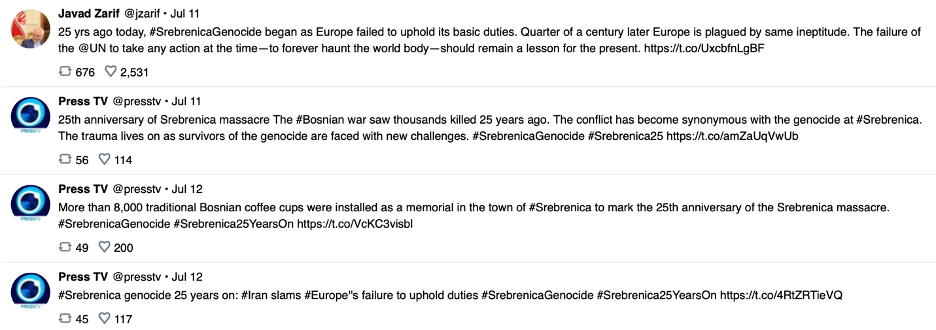

Iranian state-funded media and government and diplomatic corps accounts:
Top 10 Hashtags — June 11-July 17:
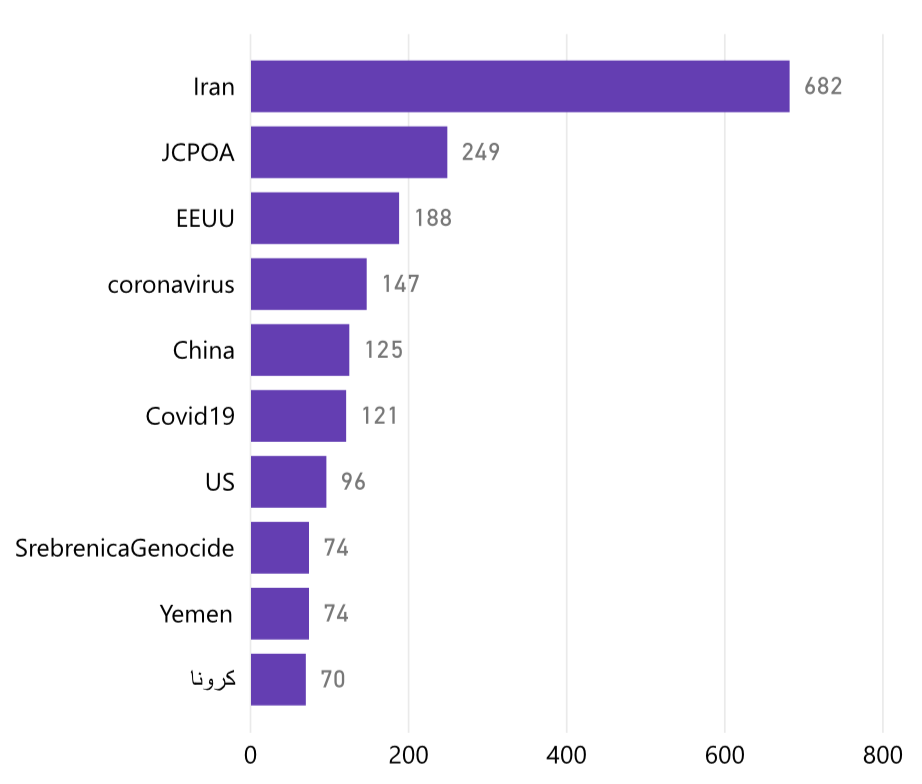
This week, the top ten hashtags from Iranian state-backed media and diplomatic accounts reflect the full media offensive surrounding the 5th anniversary of the Iran nuclear deal, the uptick in China coverage, as well as narratives around the war in Bosnia twenty-five years ago and the one in Yemen today.
Websites
Iranian government-funded websites:
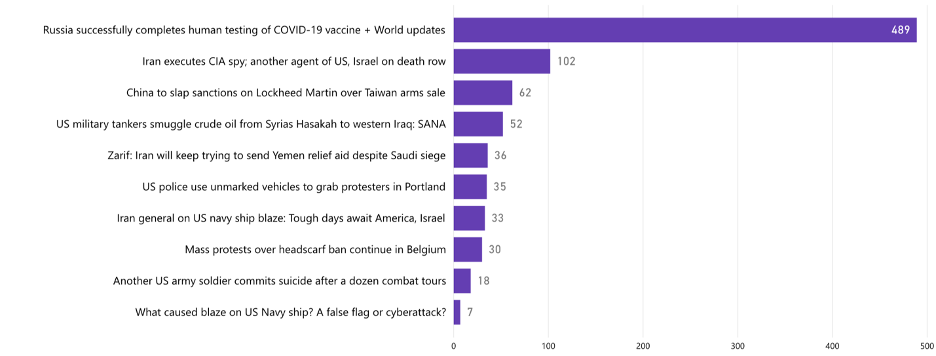
The top story last week on Tehran-backed news websites concerned hopes for a COVID-19 vaccine being developed in Russia. The second most-widely-engaged-with story announced the execution of an alleged spy, a retired Iranian Defense Ministry employee who was convicted of providing the CIA with information about Iran’s missile program. The story reports that a second accused spy, charged with providing the CIA with information about Maj. Gen. Soleimani’s whereabouts, remains on death row.
“Russia ‘successfully completes’ human testing of COVID-19 vaccine + World updates,” PressTV, July 12, 2020
“A Russian research center says it has successfully completed the clinical trials of the world’s first coronavirus vaccine on humans, and scientists in China and Thailand are also racing to start new phases in developing their own potential vaccines for COVID-19.”
“Iran executes CIA spy; another agent of US, Israel on death row,” PressTV, July 14, 2020.
“The Iranian Judiciary says it has executed a former employee of the Defense Ministry convicted of spying for the US Central Intelligence Agency (CIA), and that another agent of American and Israeli spy services is now on death row.”
The views expressed in GMF publications and commentary are the views of the author alone.

